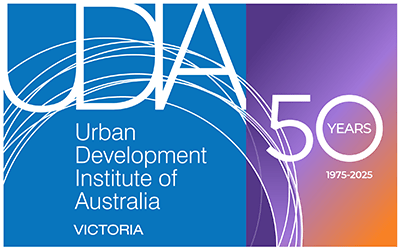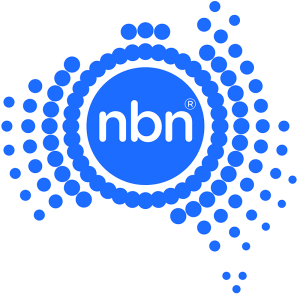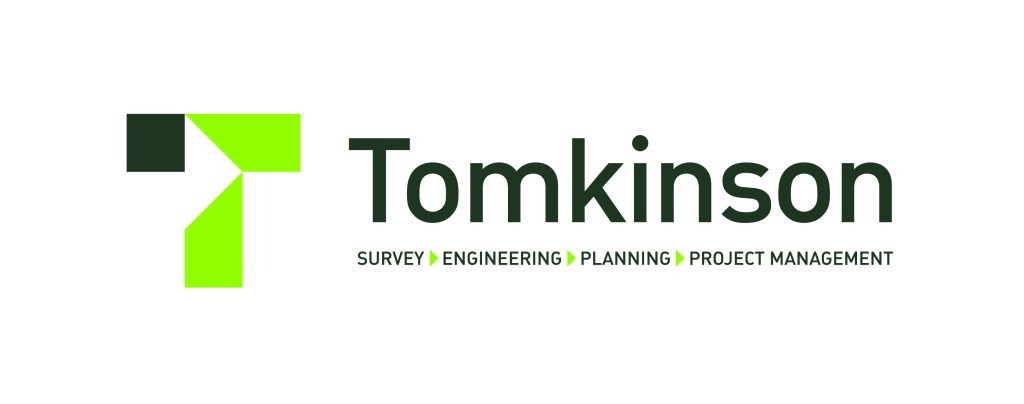UDIA Victoria has reviewed at all the election promises likely to affect the shape of Victoria’s residential development sector.
The Liberal platform is firmly rooted in adopting a decentralization approach to managing population growth. A new Victorian Population Commission will be established, a Minister for Decentralisation appointed, and significant investment in regional infrastructure, in particular High Speed Rail, has been committed. In metropolitan Melbourne, under a Liberal government, development in middle ring suburbs will be controlled under the “Save our Suburbs” banner, with changes to Neigbourhood Residential Zones and the return of height limits in the General Residential Zone flagged. The Liberal party has committed to the fast tracking of the existing remaining Precinct Structure Plan pipeline and a focus on post-PSP approval timelines. Policies for the Central City are less clear, although a commitment has been made to the development industry to overturn the height controls introduced through C270. Matthew Guy has publicly been highly critical of the use of value capture mechanisms to fund infrastructure projects but has not put forward an alternative funding plan for the significant infrastructure commitments made in the Liberal campaign. No clear position has been made with respect social and affordable housing either.
Labor’s platform claims a more balance approach to managing population growth between metropolitan Melbourne and the regions. Key transport infrastructure projects are spread across with the continuation of the level crossing removals and the Suburban Rail Loop projects being fundamental to their approach to managing population growth in metropolitan Melbourne, and upgrades to Ballarat Rail and Geelong Rail. Labor has announced they will review the only recently introduced Better Apartment Design Guidelines.
The Greens’ platform is focused on sustainable transport investment and social and affordable housing outcomes.
Read on for more on the specifics.
Approach to growth
- One of the Liberal National Coalition’s (the Coalition) more detailed announcements has been around the establishment of a Victorian Population Commission and the establishment of a Minister for Population. The portfolio of Minister for Population would be held by the Premier under Matthew Guy’s proposal. The Commission will determine sustainable levels of population, including looking at immigration levels and direction of migrants into regional Victoria. Growth will be managed via planning restrictions linked to numbers of skilled workers in key areas, and social and transport infrastructure capacity. (See this recent opinion piece on the topic of population growth by our CEO Danni Addison in The Real Estate Conversation, which cautions against capping growth).
- In metropolitan Melbourne, under the Liberal platform, housing supply in middle ring suburbs has the potential to be limited by the re-introduction of two-dwelling limits to lots and building height limit reductions in Neighbourhood Residential Zones; reintroducing the 9 metre discretionary height limit in the General Residential Zone. The Liberals will also review the garden area requirements.
- The Liberal party, has announced the intention to fast track the completion of the existing Precinct Structure Plan pipeline to ease housing affordability pressures– completing them by 2020, introducing a priority post-PSP dispute resolution process at the Victorian Civil and Administrative Tribunal, and introducing financial penalties to both responsible authorities (typically Councils) and referral authorities for failure to adhere to timeframes.
- The Labor platform flags a “balanced approach” to managing population growth between regional and metropolitan Melbourne. On regional growth, Labor’s approach will be to work with rural and regional councils to develop future growth plans that will stimulate economic opportunities as well as protect what makes places special, carefully plan the growth of regional areas so that it is at a manageable rate and not at the expense of existing regional residents, also flagging the need to protect agricultural land and Victoria’s “food bowl”.
Planning reform
- Labor has announced that if re-elected, it will review the Better Apartment Design Guidelines, to increase apartment setbacks from neighbouring properties to improve privacy, natural light, airflow, to introduce minimum green space standards, look at construction materials and construction management plan requirements to protect amenity for surrounding residents.
- On Planning, the Labor platform commits to an update to state-wide planning policies for land use in Victoria, and require councils to regularly update their Municipal Strategic Statements, a continuation of the Smart Planning process.
- The Labor platform also commits to protect third party rights to ensure access and fairness at both local government and VCAT, and to benchmark council planning processes to ensure transparent, timely and effective planning administration by local government. The Greens planning commitments include reform to the VCAT appeal process and re-introduce third party appeal rights (where they have been stripped), and requiring that all Ministerial call-ins need a legislated process of exhibition and consultation before decision.
- The Coalition has committed to support rural and regional Councils implement the decentralization policies through the restoration of planning flying squads which were closed under the Labor government.
- The Greens support mandatory height limits and minimum apartment sizes, the protection of Green Wedges and the urban growth boundary, and review residential zones performance in delivering diversity of housing product.
- The Greens would also seek to increase sustainability standards in new developments seeking an minimum 8 star rating, require all apartment buildings of 5 storeys and above to provide 50% of their roof space for either solar panels or a green roof, and ensure minimum garden areas and tree cover in areas designated for more housing, to mitigate urban heat island effect.
Governance reform
- The Coalition has announced they will appoint a Minister for Geelong, and the development of a new metropolitan planning policy for Geelong, the Surf Coast and Bellarine. A Coalition government would also create a new Seymour-based Goulburn Corridor Growth Authority, taking planning responsibility for planning growth of the Seymour and Shepparton areas out of the Victorian Planning Authority’s portfolio. The Liberals have also announced they will gazette the creation of a new Sunbury City Council within their first 100 days – something to watch given the extent of urban development proposed for the region.
- The Greens have proposed the replacement of State Government-appointed regional bodies that govern planning (such as the Victorian Planning Authority and Regional and Metropolitan Partnerships) with representative bodies that they think genuinely facilitate cross-government collaboration and are publicly accountable, including the instatement of an authoritative and democratic metropolitan-level governing body representing a coalition of metropolitan councils. Specific reforms to transport governance under The Greens would include bringing all transport planning under a single minister, and all agencies together within Transport for Victoria.
- The Greens also propose the abolition of donations to Councillors and election candidates from property developers, support for garden area requirements and apartment standards.
- The Greens have proposed a ‘Windfall Rezoning Tax’ on increases in land value due to rezoning. The Greens Policy Platform states the Greens would claim 75% of the difference between the officially assessed land value before the rezoning compared to the land value post-rezoning.
Infrastructure
- Metropolitan public transport commitments vary between the major parties – although there are many similarities.
- The Liberal party has committed to extend the Cranbourne line to Clyde with two stations, track duplication between Cranbourne and Dandenong, grade separations at South Gippsland Highway, Narre Warren-Cranbourne Road and Berwick-Cranbourne Road. Labor has also committed to the duplications, and for planning of the Clyde extension
- Upgrades to local bus services as well as increased park and ride facilities have been promised by the Liberal Party. Track duplications from Greensborough to Eltham, and Frankston to Baxter have also been committed, with two new stations and Frankston East and Langwarrin.
- Labor will continue construction of the West Gate Tunnel. Its roll out of the level crossing removals will be expanded, with a commitment to an additional 25 sites committed, costed at $6.6 billion. Rail commuters will also be supported by investment in additional car parking at train stations. No firm commitment to, nor rejection of Melbourne Metro 2 has been made to date.
- Labor’s Suburban Rail Loop proposal is proposed as an underground link between Cheltenham and Melbourne Airport, linking in to the Airport Rail and connecting through to Werribee. Labor have committed to business case development, design and consultation in 2019, anticipated commencement in 2022, with completion not until 2051.
- On Airport rail, Labor has committed to matching a Federal government’s funding commitment and announced a $5 billion funding commitment to airport rail, with a preference for the Sunshine route matching into the Metro Tunnel project already underway. The airport link is also part of Labor’s Western Rail plan (see more on that in the Regional section below). The Liberal party has also committed to Airport Rail.
- Labor has made a raft of announcements on investment in new school construction, including the establishment of a $400 million fund to partner with the non-government school sector.
- Through their Suburban Parks Package, Labor have also made announcements for significant investment in green infrastructure – with open space and regional parklands projects announced across major growth areas.
- Whilst both Labor and Liberal have committed to the North East Link, the Liberal party’s transport plan for metropolitan Melbourne is firmly centred on road transport. They have committed to the delivery of both the North East Link and an East West Link (two options to be examined), with construction on both to commence in 2020-2021 and completion across 2026 and 2027. Traffic light removal project, costed at $4.1 billion to $5.3 billion, aims to replace traffic lights and roundabouts at 55 locations across Melbourne and Geelong. Grade separations in 35 locations have been announced, with 20 more being planned.
- The Greens’ Transform Transport plan for Victoria is firmly based in upgrades to public transport networks and systems, and cycling networks / active travel, in line with their Transport and Freight Policy, which sets out key principles and aims which will guide their decision making around transport infrastructure
- The Greens have committed to broadening the scope of the current Melbourne Metro project to electrify the Melton line and extend rail to Clyde, deliver on the interchange and South Yarra Station and upgrading South Kensington, South Yarra and Caulfield, in addition to bringing forward the peak hour service plan currently proposed for 2031. Their current cost estimate for these additional works is $2.3 – $4.9 billion.
- As an alternative to mega road projects, the Greens have also clearly indicated their support for the Melbourne Metro 2 rail project which would connect Clifton Hill to Newport, create new stations at Fitzroy and Fisherman’s Bend, the extension of rail to Wollert and Wyndham Vale and also free up capacity for more services on the Werribee and Mernda lines, committing $100 million to start planning.
- The Greens have called for the cancellation of West Gate Tunnel contracts, preferring the funding to be directed towards the public transport network. Their Transport Master Plan for the West calls for an investigation into an inner west orbital rail loop and new cross-suburban light rail routes, boosting services on the existing rail network and more investment in bus services, and the electrification of the Melton line.
Regional transport infrastructure
- The Liberal government have committed to delivering a high-speed rail network, with trains of up to 200km/h – promising travel times of 32 minutes to Geelong, 45 minutes to Ballarat, 70 minutes to Bendigo and faster times to Shepparton, Traralgon. There’s also been a $633 million investment commitment for a new regional train fleet to service those lines, however the V/Locity trains to be ordered are not able to travel at 200km/h, putting their quoted travel times for the regional rail network into question.
- The Liberal’s proposed Geelong Metro system, costed at $15-19 billion, would link Geelong directly to Werribee via the metropolitan rail service, which would continue on to Waurn Ponds, in addition to a Colac to Bannockburn service via Geelong.
- Labor also have plans for Regional rail, with a Fast Ballarat line and Fast Geelong Rail upgrades announced as part of their Western Rail Plan and existing Regional Rail Revival program.
- The Liberal party has also committed to the construction of the Kilmore Bypass.
Social and affordable housing
- Labor’s platform has a strong focus on both social housing and affordable housing, continuing the work under its Homes for Victorians program.
- The Greens have a strong push for social and affordable housing. They would mandate affordable housing (inclusionary zoning) in all new property developments, seeking 30% of new dwellings in ”big” apartment buildings to be set aside for public and community housing or other forms of affordable housing. A new fast track priority application stream would be created to accelerate deliberative housing projects.
- In addition to committing to build 80,000 homes over the next 12 years, The Greens would require 30% of new big apartment developments to be public, community or other affordable housing, providing more homes for Victorians. The Greens would stop the sale of public housing, and seek to put a cap on rent rises and setting minimum standards for rental properties.
Whatever the outcome of the election, UDIA Victoria has a strong Advocacy Agenda that will guide our engagement with the new government on behalf of our members.











